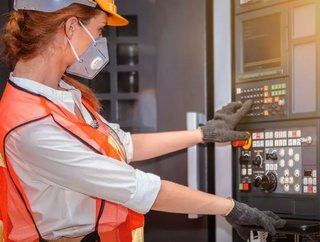Automation and the impact of COVID-19 in manufacturing

With Industry 4.0 embraced at scale over the past few years, COVID-19 has only accelerated its influence in the manufacturing space.
Speaking in July’s edition of Manufacturing Global, Rajaram Radhakrishnan, Senior Vice President and Global Markets Leader of Manufacturing, Logistics, Energy & Utilities at Cognizant, believes the vast change in consumer behaviour because of the coronavirus will ultimately lead to more automation and virtualisation. “We will see advancements in how IoT and augmented and virtual reality better enable the non-remote workforce. Smart factories and offices will increase, allowing critical functions that currently need to be overseen in person to be monitored remotely or, at a minimum, by fewer people,” commented Radhakrishnan.
Prasad Satyavolu, Chief Digital Officer, Manufacturing and Logistics at Cognizant, affirms that “automation provides the capability to improve the ease of operations, not only for customers but also employees, partners and suppliers of the manufacturing sector, and when integrated correctly, automation can amplify people’s skills and strengths to increase workplace efficiency.”
In a survey by IoT company, Pod Group, it was found that 73% of the 500 UK business leaders surveyed believed that COVID-19 will spark a new wave of automation. 62% of those surveyed anticipate their own companies to accelerate plans to use automation in some processes currently carried out by employees. This percentage is higher in retail, catering and leisure, in finance and IT and telecoms. Respondents to the survey believed that the driving factors behind introducing workplace automation are reducing costs, being less reliant on human workers and enhancing work quality.
Alan Duncan, Senior Industry Strategy Director at Blue Yonder, highlights that “in the case of a pandemic, or similar catastrophic events, the focus should be on machines autonomously running mundane, day-to-day tasks with people intervening based on experience and complementing the machine with strategic actions. “Ultimately, it’s machines and people working together that will get us through this crisis, and those that will inevitably occur again,” said Duncan. “Automation has evolved into having a greater focus on flexibility, scalability and process adaptability, becoming a tool to optimise efficiency through manufacturers’ ability to adapt to demands.”
Interested in reading more? Check out July’s edition of Manufacturing Global!
- Top 10: Chief Manufacturing OfficersProduction & Operations
- Aerospace Insight: Where does Boeing make all of its PlanesProduction & Operations
- Comau's Automation Solutions for Outside of ManufacturingAI & Automation
- Toyota Partners with Artelys to Streamline Post-ProductionProcurement & Supply Chain






